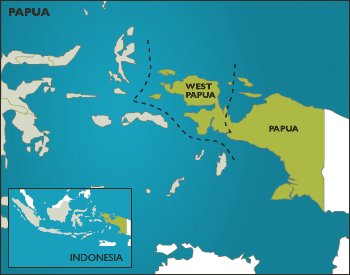Down to Earth No 68 February 2006
Despite protests from NGOs, the Asian Development Bank has approved a loan for BP's giant Tangguh gas project in West Papua.
In December 2005, the Asian Development Bank (ADB) decided to put US$350 million towards the $5.5 billion gas extraction and liquefied gas processing plant, now being developed by Anglo-US multinational BP, in Bintuni Bay, in the western part of West Papua.
This project has attracted critical attention because of the actual and potential impacts on local people and the e

